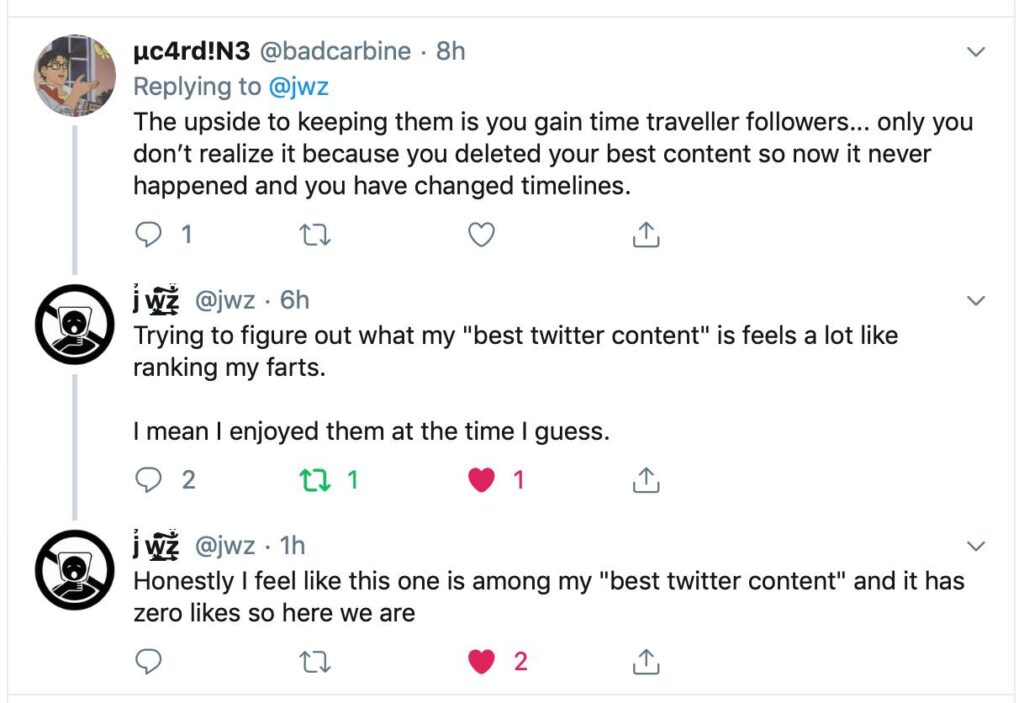In response to allegations of rampant voter fraud, and subsequently digging into the details of the voting, Scott Adams tweeted (and I’m embedding static images, for reasons which will become clear):
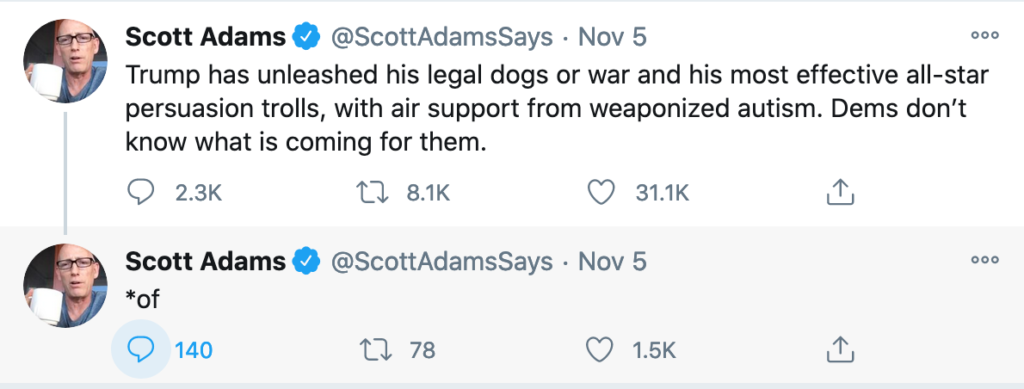
Knowing what he was talking about, I laughed, and bookmarked the link. Sure enough, this post went viral on Reddit. In it, someone demonstrates that the votes for Biden in highly-contested areas do not fit the expected statistical pattern.
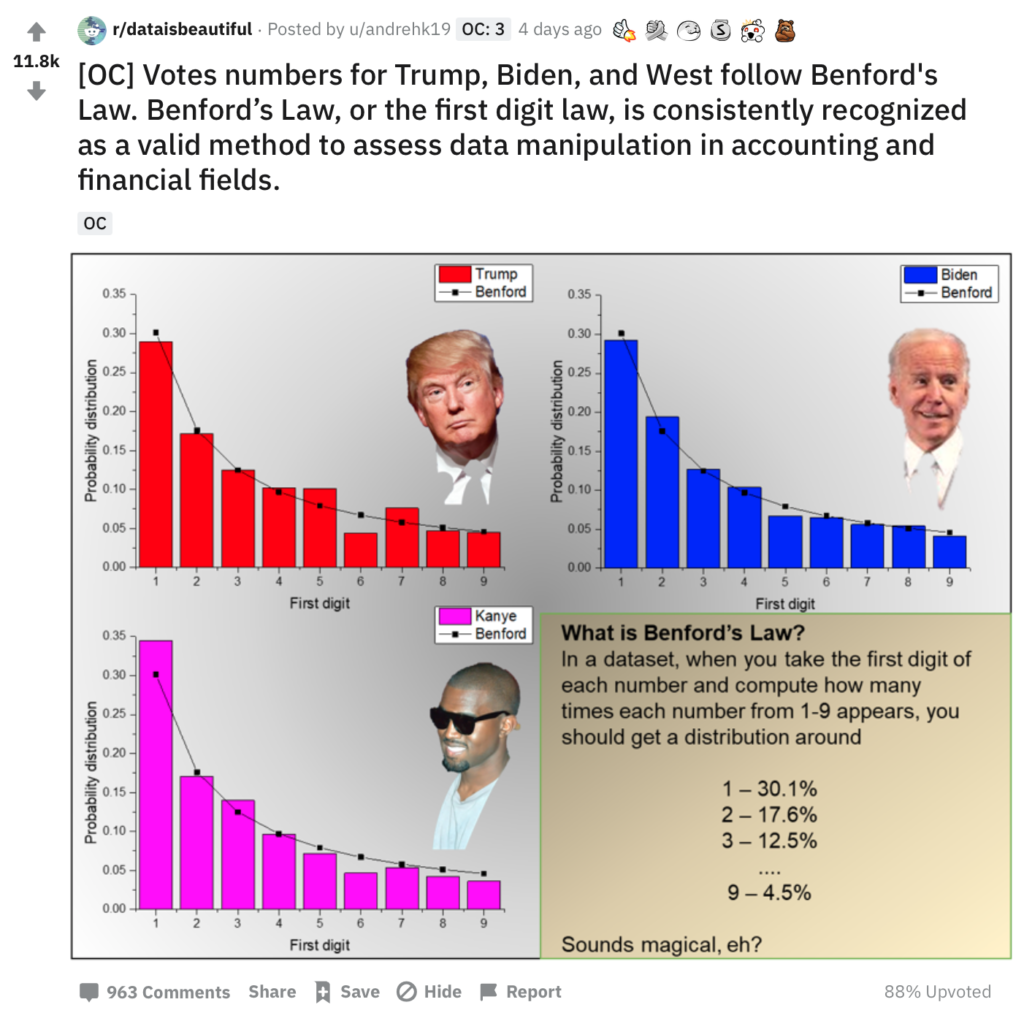
Someone forwarded me a link to this article, in Gnews — whatever that is — but, again, something that will become clear later. That article references the Reddit post.
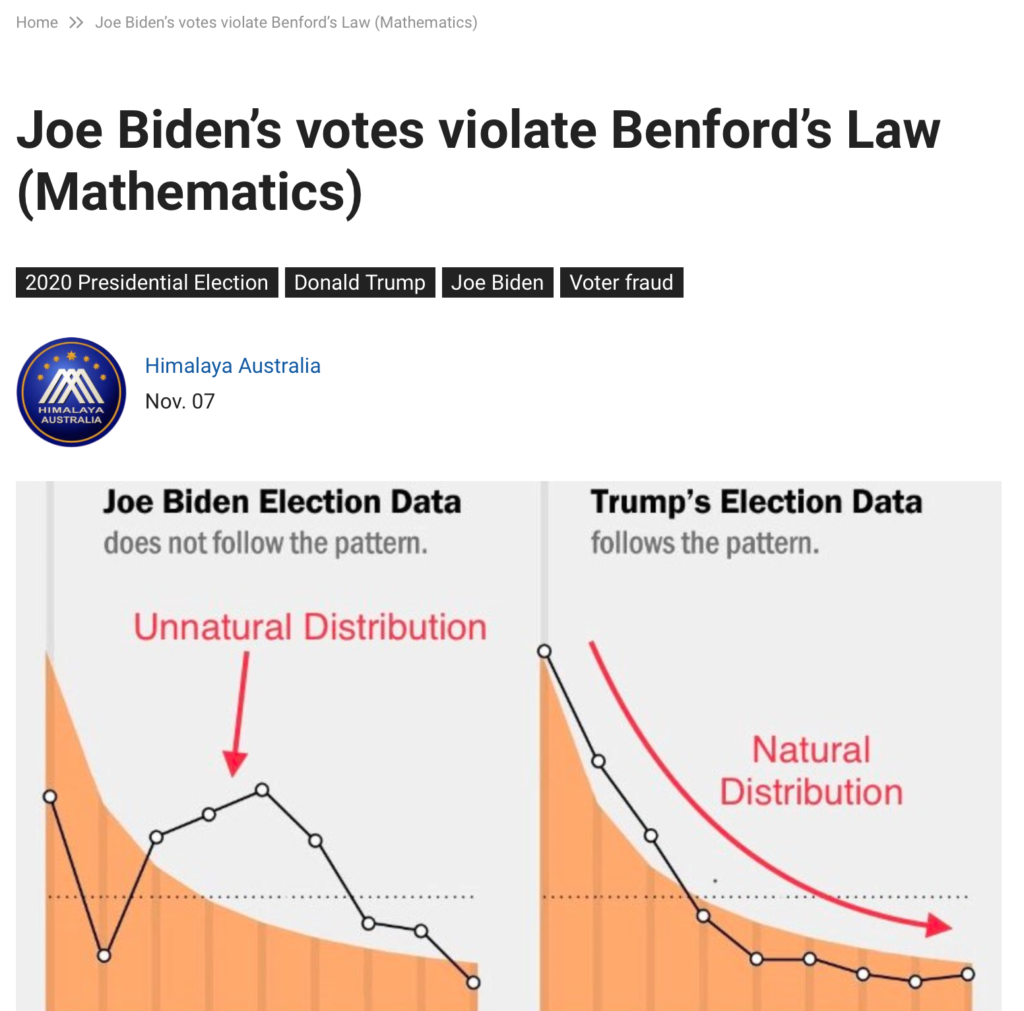
The article includes a link to the data, and the math to produce the graphs, hosted at GitHub. The top left graph demonstrates the issue at hand.
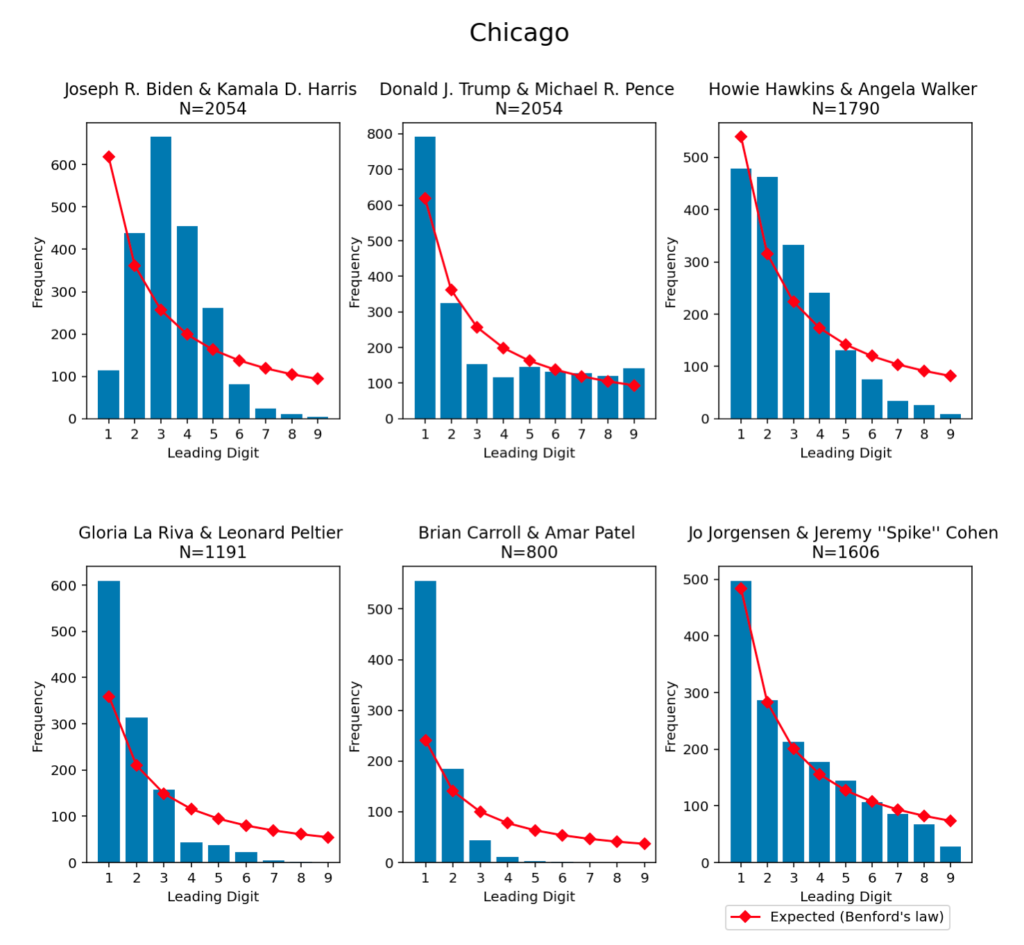
Since the most concise place to link into all of these seems to be the Gnews article, I linked it in Twitter, with a comment: “Absolutely fascinating.” I hit refresh in my browser, and got this suspension:
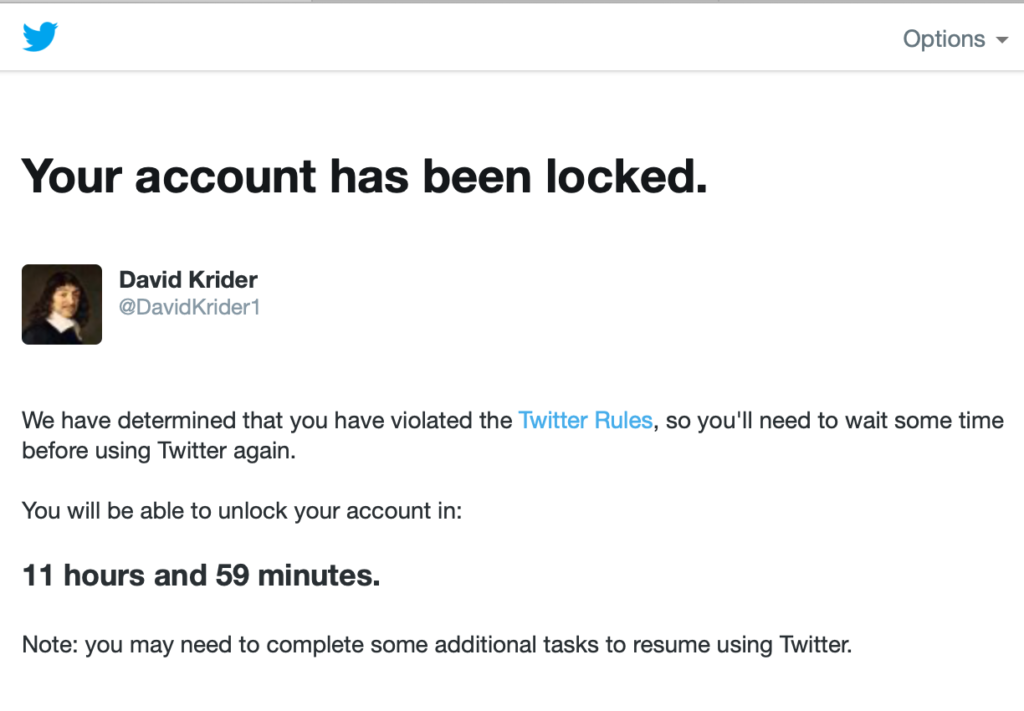
I was also immediately emailed a notification that I had been suspended for — get this — posting nudes.
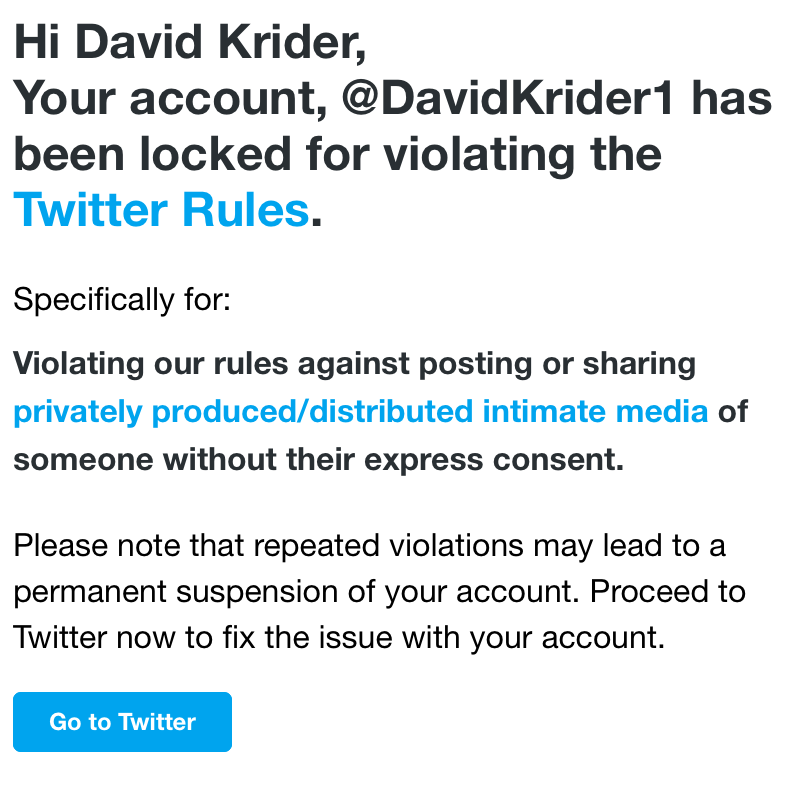
I’ve since looked around the Gnews site for more about what they’re all about, and they have several articles showing Hunter Biden in various… extremely compromising pictures. So I’m guessing that’s what the ban is all about. But if they want to ban me for posting a link to a news site that they’ve blocked entirely because they don’t want to hurt the Bidens, well, they can have their stupid service.
As for the actual content of the story, and the implications of the statistical math, I agree with the interpretation that it is a smoking gun for fraud. Up till now, I was willing to assume that the allegations of systemic vote manufacture were just paranoid delusions of a party desperate to hold on to power, and I was confident that, once reviewed, problems would be easily attributable to normal human error. Even though all the questionable counts seem to only be going one way, I assumed that the courts would ensure that it was all sorted out.
Now, the shoe is on the other foot. If this is all true — if the data really shows this statistical anomaly in many hotly-contested areas — especially where Biden “extended” his “lead” in after-election-day counting — then it changes the equation. This would make it incumbent on the Democrats to put all of the votes on the table, and prove that they haven’t fudged the numbers.
UPDATE: Wondering how widespread these Hunter Biden pics/videos were, I searched Reddit for “Hunter Biden sex tape.” There are dozens of posts with headlines saying that you would be banned for posting any link to it/them, because they were leaked against someone’s will. Meanwhile, at the top of the search results, in the “related subreddits” section, was a link to an entire subreddit devoted to… leaked sex tapes. What a bunch of hypocritical tools. “Sure, you can post intimate videos of people without their consent, just not of anyone powerful, who could afford to sue us and make a dent in our revenue.”

